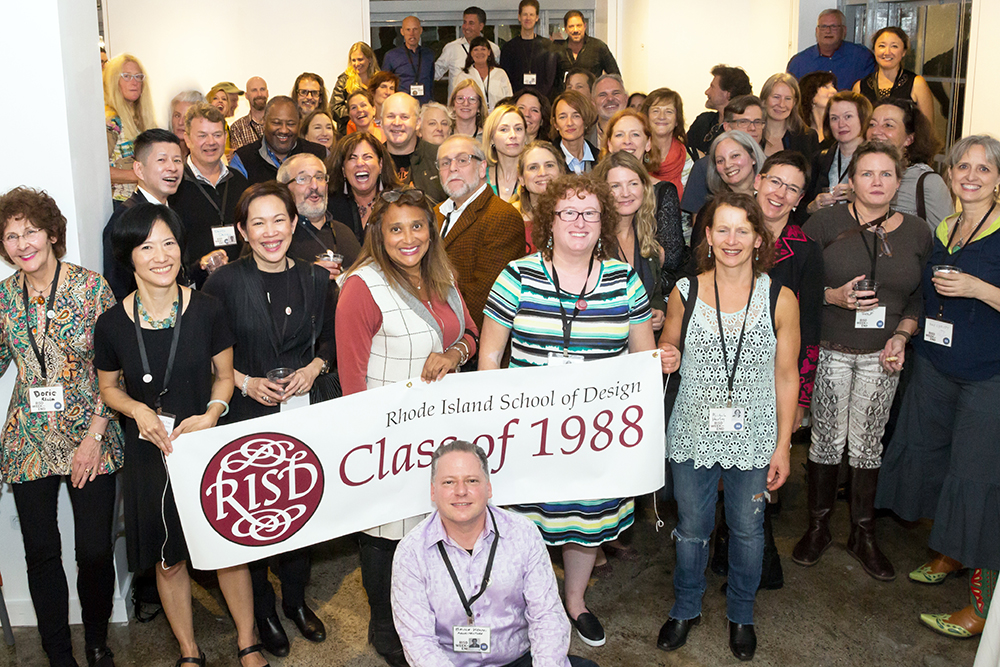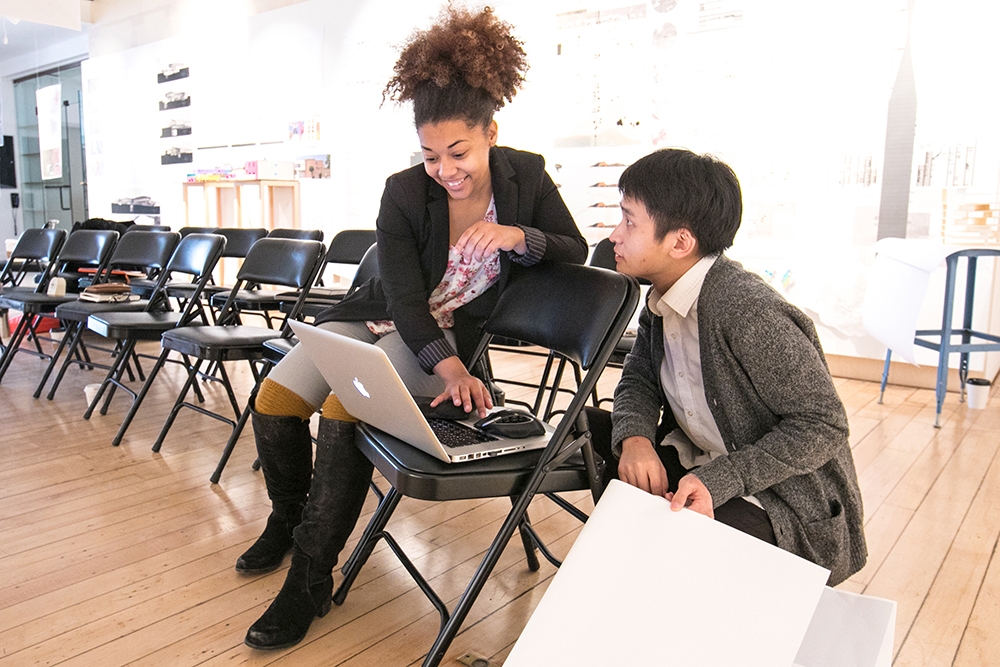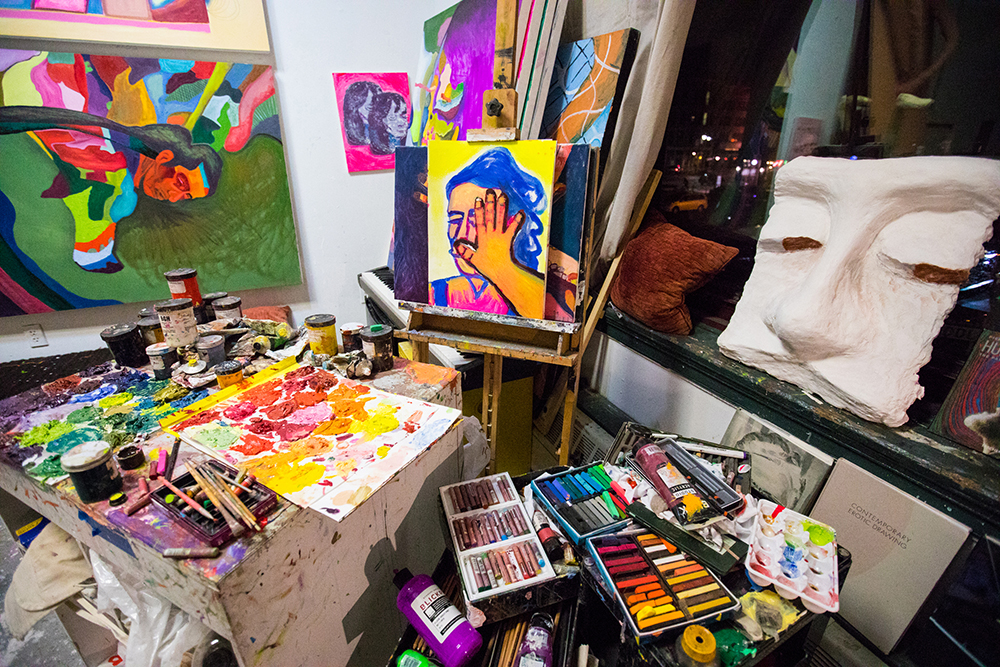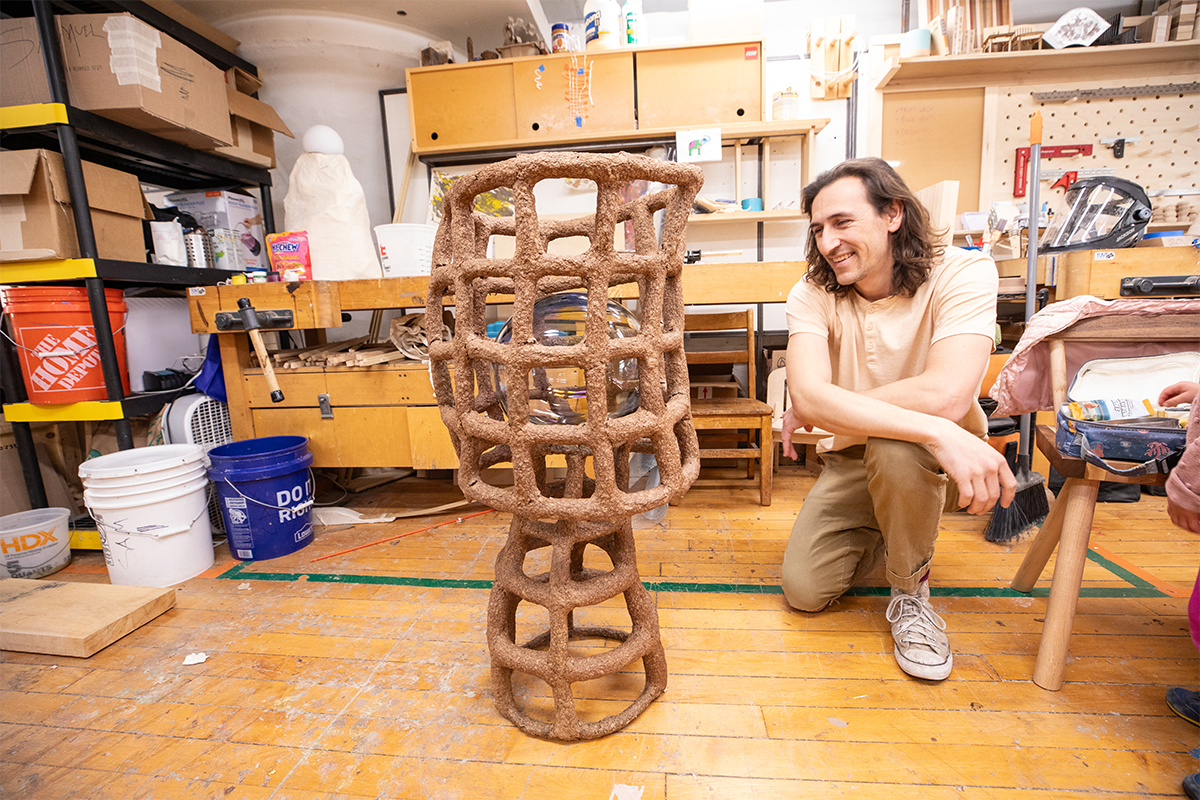
Inspired Research
To solve the problem of unsustainable production, Samuel Aguirre MFA 24 FD draws on RISD’s culture of collaboration and critique.
Samuel Aguirre MFA 24 FD lived in Brooklyn, NY for a decade before moving to Providence to attend RISD. Although he was busy raising a family with his partner and working, first in construction management and then business development for a company specializing in architectural products, he also made time to build furniture on the side.
He fell in love with the world of furniture after visiting the International Contemporary Furniture Fair, he says, and realized that was the work he wanted to pursue. Aguirre found studio space in the Brooklyn Navy Yard, accumulated tools and skills, and eventually created a body of work that he sold through a gallery. That work comprised the portfolio that got him into RISD.
“Coming to RISD was about making time for furniture making,” Aguirre says, though that choice was not an easy one to make. “I think being a father of two and coming back to school with my partner and leaving our life in Brooklyn...financially, it was very difficult.”
Fellowship and Materials Fund support have helped propel Aguirre’s career at RISD. He is the recipient of one of two Windgate Foundation Scholarships awarded annually to students working in programs focused on metals, wood, ceramics and textiles, and his project Exploring Upholstery, which experimented with commercial grade, compostable furniture and objects using commercially available materials, was made possible through a successful application to the Materials Fund.
“Securing financial aid and fellowships made a huge impact,” Aguirre says, for both him and his family. His family life has also inspired his research.
Aguirre’s interest in compostable materials was sparked in part by making papier-mâché toys with his son, back when they were living in Brooklyn.
“This work began as a project with my son to make papier-mâché helmets and toys,” Aguirre says. “We were originally motivated to make our process and material compostable for a clear conscience and easy disposal. Over time we found the objects we made to be extremely resilient and structurally sound. So much so that the toys we made a few years ago are still in the toy bin today, in the same condition as when we made them.”
As he investigated using compostable materials and means of fostering a circular economy, in which materials or products can be reused or regenerated, Aguirre sought feedback and thought partnership. He found just that in Senior Critic Daniel Heyman, a printmaker who founded and leads the papermak-ing program at RISD, and Tony Torres MFA 25 PR. Heyman’s guidance, knowledge and collaborative spirit have been instrumental, Aguirre says, in developing new ways to use traditional paper making materials in furniture.
Through Heyman, Aguirre met Torres, his partner in creating a chair and a credenza framed in ash and wrapped in mulberry fibers. This technique is similar to amate, a Mesoamerican papermaking process that uses plant-based, rapidly renewable materials. “The pieces lean on the inherent environmental benefits of papermaking craft and raise questions about the contemporary application of pre-industrial processes,” Aguirre says. Also intended to raise questions about the expected lifespan of furniture, the credenza and chair were shown in April at Salone del Mobile, the largest annual furniture design fair in the world in Milan.
Aguirre has also been open to outside partnerships. In the summer of 2023, he won a Maharam STEAM Fellowship in Applied Art and Design to work with What Cheer Flower Farm in Providence. A nonprofit agriculture and floristry center, What Cheer aims to bring solace and joy to the community by giving away thousands of flowers annually, hosting a variety of workshops and supporting the local economy via job training. Aguirre designed a 12-foot-tall sculpture that serves as a landmark for the farm’s new, tucked-away space on former factory land in the Olneyville neighborhood. The fellowship provided a singular opportunity to operate in a creative capacity with a nonprofit that shares his values, Aguirre says, and the relationship may lead to more work together in the future.
Looking ahead, Aguirre says he would love to partner with industry and scale some of the designs that he has developed, building on his experience collaborating and problem-solving to address manufacturing’s wastefulness and dependence on petroleum-based products.
“This experience is craft-based and experimental, so the recipe is there to pursue something that may not be practical at first or immediately resonate with an audience,” Aguirre says, “but it is a crucial step in the iterative process. Sometimes we’re planting seeds, sometimes we’re harvesting.”
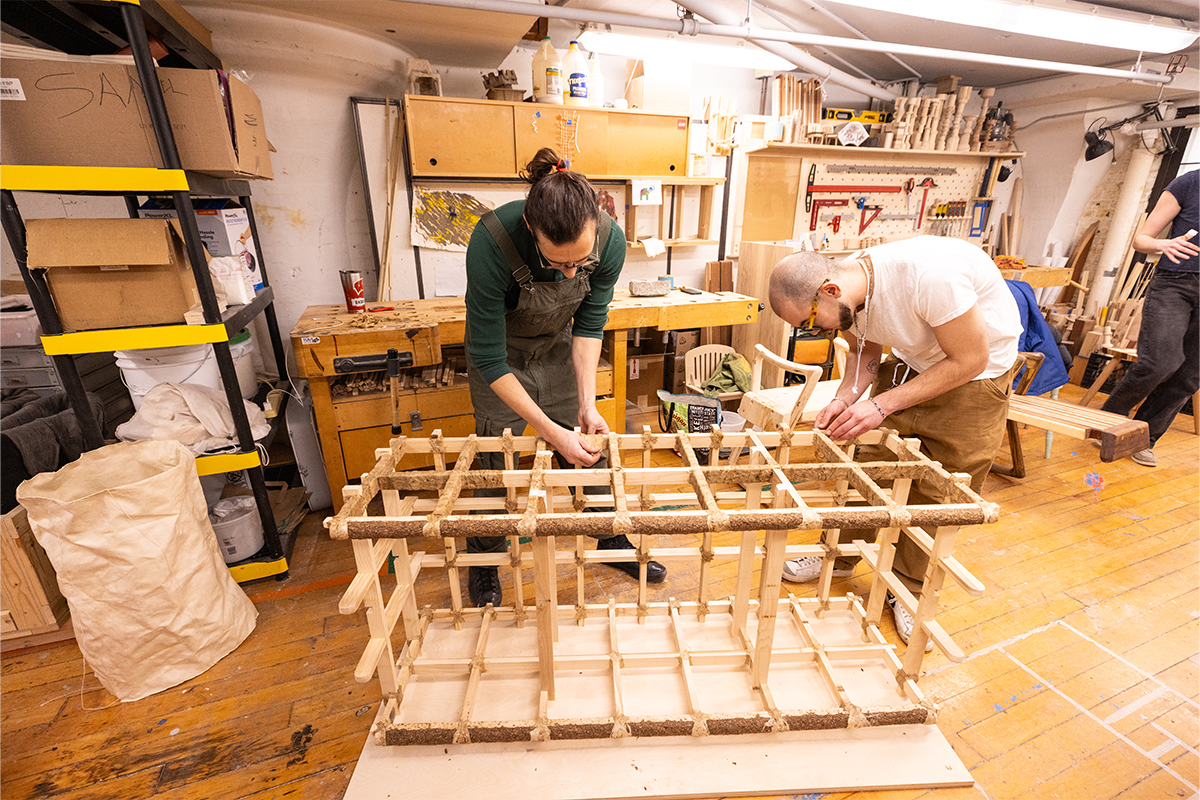
To learn more about supporting graduate fellowships, contact Vice President of Institutional Advancement Amanda Clark MacMullan at 401 454-6532 or amacmull@risd.edu.

